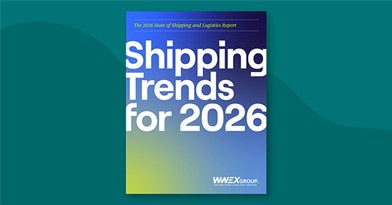International Shipping Tips: Dealing with Customs
If you’re new to the world of international shipping — or don’t often ship beyond the border — then understanding the customs process may feel like quite the undertaking. Luckily, with some simple tips, it can become a lot less complicated. Unishippers is here to explain the process and help you get your international shipments delivered without delay.
Ready to take the confusion out of customs? Read on to get Unishippers’ helpful tips for simplifying the international shipping process.
What does customs actually mean?
To put it simply, customs refers to the taxes and fees incurred on goods shipped between countries. These costs will be assessed when your goods arrive at the border, and must be paid before your shipment can be delivered.
Anticipating customs fees
Since every country has its own guidelines, customs costs will vary depending on the country and item(s) being shipped. Luckily, there are helpful tools to help you estimate these fees ahead of time. UPS® offers tools to help predict your shipping costs upfront, in addition to other helpful resources for managing your international shipments. You may also consider identifying countries that have a free trade agreement with the United States, which gives you access to lower customs costs.
Understanding customs documentation
It’s important to know that your international shipments will require documentation. Incomplete or inaccurate documentation could potentially delay your shipment from reaching its destination. Common documentation required includes:
- Commercial Invoice. This is the most common document required for international shipments, which helps identify the product(s) being shipped in order to assess taxes and duties.
- Electronic Export Information (EEI). EEI documentation, which is filed electronically to the U.S. Census Bureau, is required for U.S. exports with a value above $2,500 for a single commodity.
- Certificate of Origin (CO). Depending on the commodity and its destination, a CO may be required to verify where the goods were manufactured. For cross-border shipments to Mexico or Canada, you must use the US-Mexico-Canada Agreement (USMCA) Certificate of Origin Form.
- Other documents. Additional customs forms may be required based on your specific shipment and delivery destination. View the UPS International Forms Library for more information.
Tips for streamlining your international shipping
Shipping internationally and dealing with customs can feel a bit overwhelming if you’re new to the process. It can be especially hard to work with customs if you’re shipping to a country that is not technologically advanced, has a high crime rate or is experiencing political unrest. However, there are still ways to simplify the process. Consider these tips when navigating customs:
- Understand country-specific shipping regulations. Certain items may be prohibited for import in other countries, or require additional documentation — and the items may surprise you! Make sure to check the official customs website for your shipment’s destination ahead of time. Most countries should make it very clear which goods are prohibited on their customs website.
- Accurately classify your shipment. Harmonized System (HS) Codes are used to standardize the classification of goods, so customs authorities around the world can seamlessly identify products and assess the appropriate taxes. If you incorrectly classify your items, you may face unexpected charges and delays. You can use online tools like the Census Bureau’s free Schedule B search engine to find the correct code for your shipment.
- Send your customs documents electronically. Simplify the customs clearance process by uploading your forms electronically. Your Unishippers team can help you set up UPS Paperless® Invoice to easily submit and manage your customs documents, allowing your shipment to begin processing earlier and clear customs faster.
Pro tip: Because international shipments will likely experience additional handling in transit, make sure to package your shipment appropriately in order to reduce the chance of damage.
With a little preparation — and the right partner to assist you along the way — you can avoid the common headaches of shipping beyond the border. With UPS international shipping through Unishippers, we can help you navigate the customs process — and save you time and money in the process! Get a quote today to get started.



